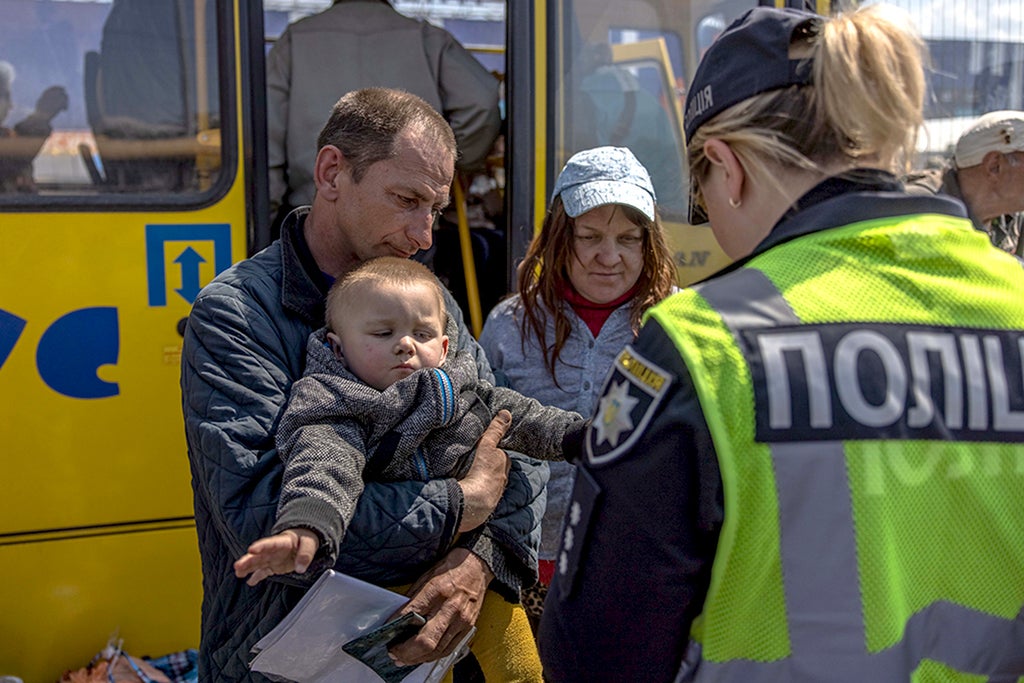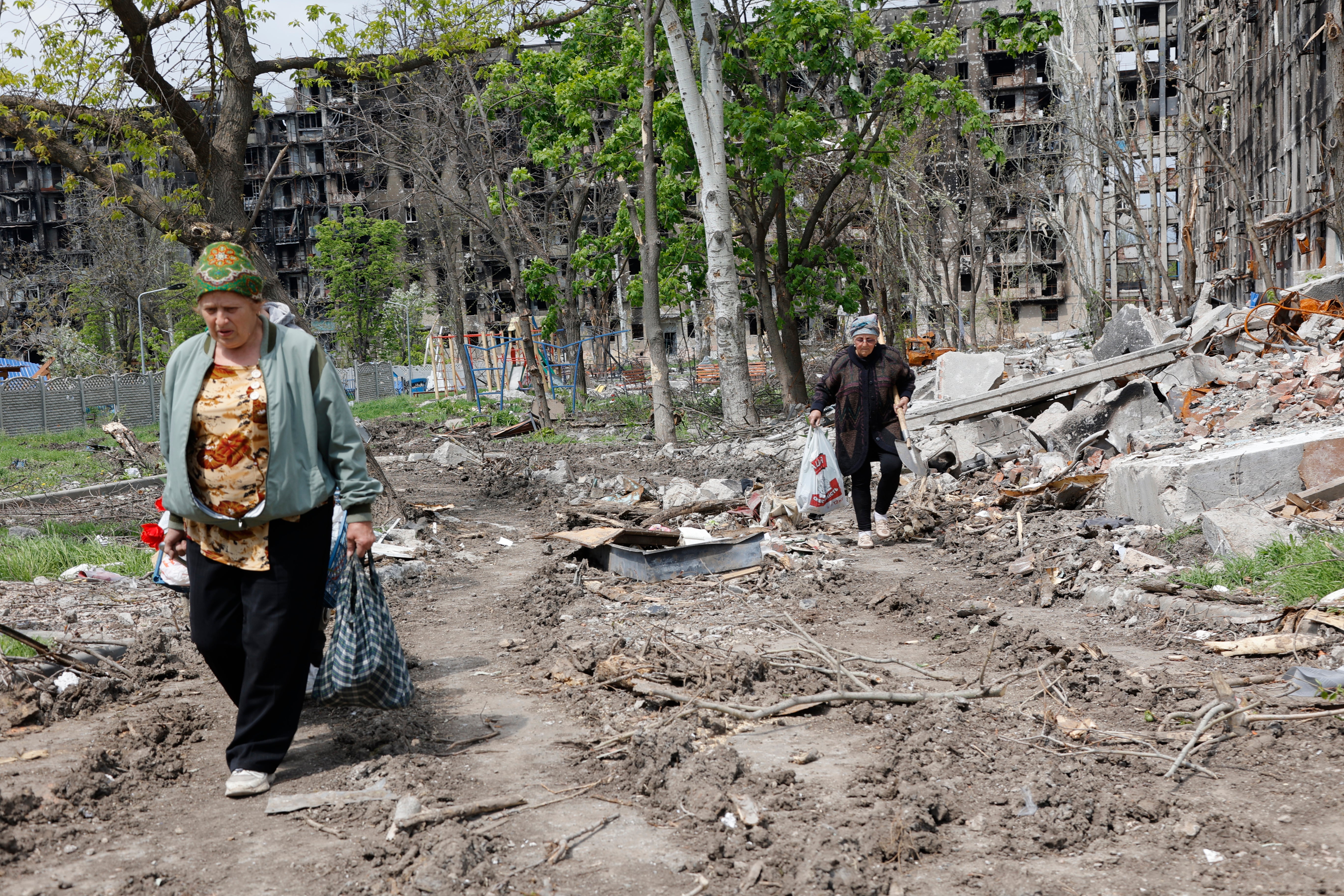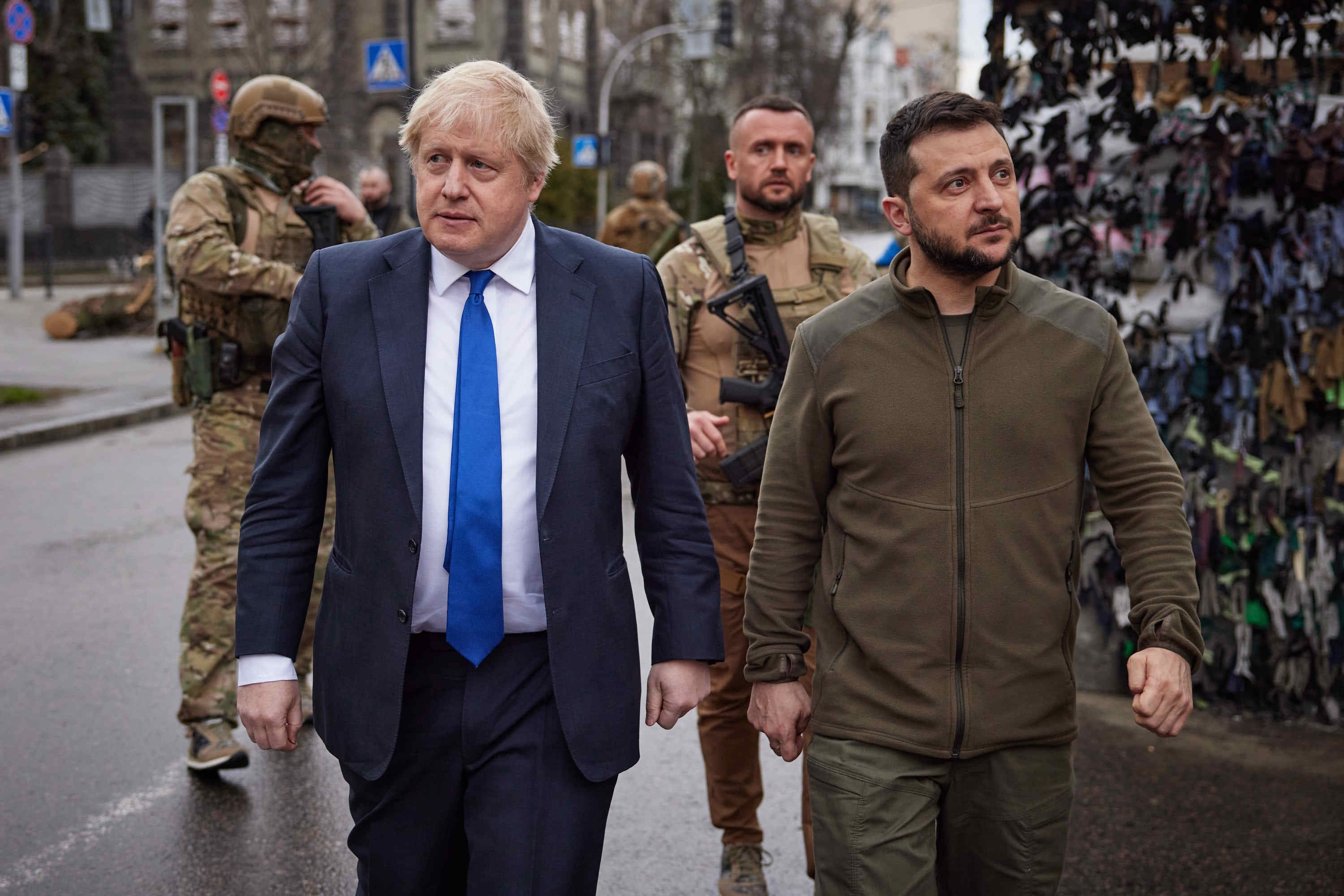
More than one million people, including nearly 200,000 children, have been taken from Ukraine to Russia in the past two months, officials in Moscow have claimed.
According to Russian-owned news agency TASS, this figure included 11,550 people moved from Ukraine to Russia in the last 24 hours, “without the participation of the Ukrainian authorities”.
He said the civilians were evacuated from the “dangerous regions” of Donetsk, Lugansk and other parts of Ukraine, according to the report.
It comes as around 100 civilians were evacuated from the besieged city of Mariupol on Monday, with many more still trapped in the Azovstal steelworks.
The UN had on Sunday successfully negotiated safe passage for some civilians from the plant, the last stronghold of resistance against the Russian attack. However, Russian forces resumed shelling after some of the evacuees left, according to reports on Monday.
Ukraine now hopes a column of evacuees from the ruins of the steelworks will reach the Ukrainian-controlled city of Zaporizhzhia later on Tuesday.

Mariupol mayor Vadym Boichenko said more than 200 civilians were still in the steel plant where the city's last defenders are holed up. A total of about 100,000 civilians remained in the port city, he said.
“The column [of evacuees] is moving towards Zaporizhzhia. The evacuation continues,” Mr Boichenko said on national television. “We are limiting information and hope that the evacuees from Azovstal will reach Ukraine.”
EU prepares fresh sanctions against Russia
Meanwhile in Brussels, the European Commission is expected to propose a sixth package of EU sanctions this week against Russia, including a possible embargo on buying Russian oil. Kyiv says Russia’s energy exports to Europe, so far largely exempt from international sanctions, are funding the Kremlin’s war effort with millions of euros every day.
“This package should include clear steps to block Russia's revenues from energy resources,” Ukrainian president Volodymyr Zelensky said in his nightly video address.
Germany said on Monday it was prepared to back an immediate EU embargo on Russian oil after the nation’s economy and climate minister Robert Habeck said on Sunday that quitting Russian oil by the late summer is “realistic”.
“We have managed to reach a situation where Germany is able to bear an oil embargo,” Mr Habeck said.
Chancellor Olaf Scholz, who has been more cautious than other western leaders in backing Ukraine, has been under growing pressure to take a firmer line against Russian oil.
Mr Scholz vowed sanctions will not be lifted until Russian president Vladimir Putin signs a peace deal with Ukraine that Kyiv can support, he said in an interview with ZDF public television.
UK renews support for Kyiv

In a further show of support to Ukraine, UK prime minister Boris Johnson will evoke Britain’s struggle with Nazi Germany as he tells Kyiv’s parliament on Tuesday that their country’s resistance of Russian invasion is its “finest hour”.
The prime minister will be the first western leader to address the Verkhovna Rada, Ukraine’s parliament, by video link, almost two months after president Volodymyr Zelensky gave his own message to the House of Commons.
Mr Johnson will say that the UK is “proud to be among Ukraine’s friends” and will announce a new £300m package of defensive military aid, including electronic warfare kits, a counter-battery radar system, GPS jamming equipment and thousands of night-vision devices.
Additional support for Ukraine has also come from the Vatican as Pope Francis said that he asked for a meeting in Moscow with Russian president Vladimir Putin to try to stop the war in Ukraine but had not received a reply.
The pope also told Italy's Corriere Della Sera newspaper that Patriarch Kirill of the Russian Orthodox Church, who has given the war his full-throated backing, “cannot become Putin's altar boy”.
Pope Francis, who made an unprecedented visit to the Russian embassy when the war started, told the newspaper that about three weeks into the conflict, he asked the Vatican's top diplomat to send a message to Putin.
He said the message was “that I was willing to go to Moscow. Certainly, it was necessary for the Kremlin leader to allow an opening. We have not yet received a response and we are still insisting”.
He added: “I fear that Putin cannot, and does not, want to have this meeting at this time. But how can you not stop so much brutality?”







